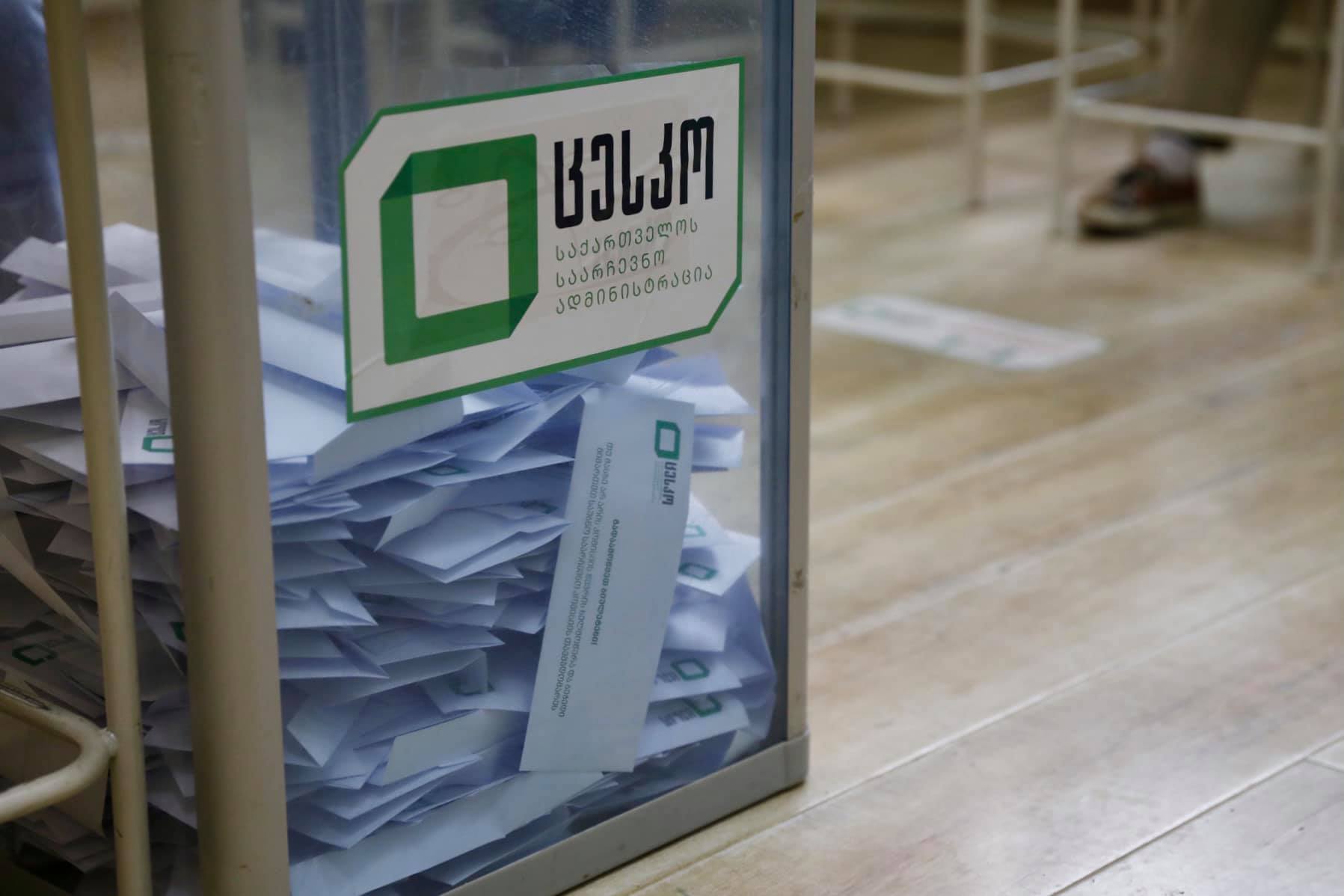On June 17, the Central Election Commission (CEC) responded to a TV story by the opposition-leaning Mtavari TV on the upcoming parliamentary elections, alleging possible manipulation at the October parliamentary elections, with a particular focus on the introduction of electronic voting. The CEC accused Mtavari TV of “another attempt to discredit the electronic elections and the election administration”. Among other things, the CEC says the channel never contacted it for comment, despite the former’s stated willingness to answer media questions.
The Mtavari TV story explained how the voting at the October 2024 elections will work and how they will be different from previous elections, as it will be the first time that most of the country will vote on electronic machines. The author of the TV story stresses that “both the verification and the counting of electronic machines will be in the hands of commission members appointed or elected by the Central Election Commission, which is the same as the Georgian Dream…” In the TV report, the representatives of political parties, including those who are also members of the CEC, recall the common practice of election manipulation, including the possibility of carousel voting, voter intimidation, and voter buying.
The TV story highlights concerns over potential tampering with voter lists, specifically mentioning fears of manipulations like unauthorized additions to the voter lists in the machines. The respondents in the TV story issued calls for a high voter turnout to hinder the ruling party’s ability to falsify election results, alongside warnings against succumbing to intimidation tactics which they say are frequent in Georgia’s electoral environment.
The CEC criticized the journalist and certain CEC members for making unsubstantiated claims in the story. “In the above mentioned story, both the journalist and some members of the CEC, who are appointed by political parties, made unfounded and groundless statements, as if the CEC protects the interests of the government, the precinct election commissions are staffed by other institutions, not by the CEC, and so on. It should be emphasized that the statements of both the journalist and some members of the CEC clearly confirm that the only task of spreading this information is to sow distrust among the voters towards the election administration and the election process in order to further use this distrust in accordance with political interests,” the CEC said
The CEC also accused its opposition members of “turning to the open agenda of discrediting and damaging the process, which is unacceptable according to the Georgian legislation and international standards, since the member of the commission should not represent the appointing political party, but should be neutral and impartial.”
The CEC rebutted the allegations systematically, denying the possibility of carousel voting, connecting verification machines to the internet, and any potential manipulations of the voter lists.
“In addition, we would like to remind the public that the CEC is composed of 17 members, including 8 elected on professional grounds and 9 appointed by political parties, and that decisions are made by the commission and not individually, which again indicates a high level of representation and inclusiveness,” the CEC continued.
The Parliament has recently adopted the controversial amendments to the CEC staffing rules, according to which the Speaker of Parliament, instead of the President, nominates and announces the competition for the election of the CEC Chairman and non-partisan members (“professional members”) of the CEC. Parliament must then vote 3/5 (90 votes) in the first hearing to elect a candidate for the chairmanship/membership of the CEC. If this fails, Parliament may try again by a simple majority (76 votes), with only two attempts allowed before the power to appoint the CEC chairperson/member passes to the President. Notably, the CEC Chairperson/member will serve a full 5-year term even if elected by a lower quorum.
The Parliament has also abolished the post of the Deputy Chairman of the CEC, which was held by the representative of the opposition.
The President vetoed the law, which was subsequently overridden by Parliament. Meanwhile, opposition groups and civil society organizations criticized the amendments for compromising the neutrality of the CEC. They also highlighted that these changes do not align with the nine conditions set by the European Commission and the recommendations of the Venice Commission.
Also Read:
